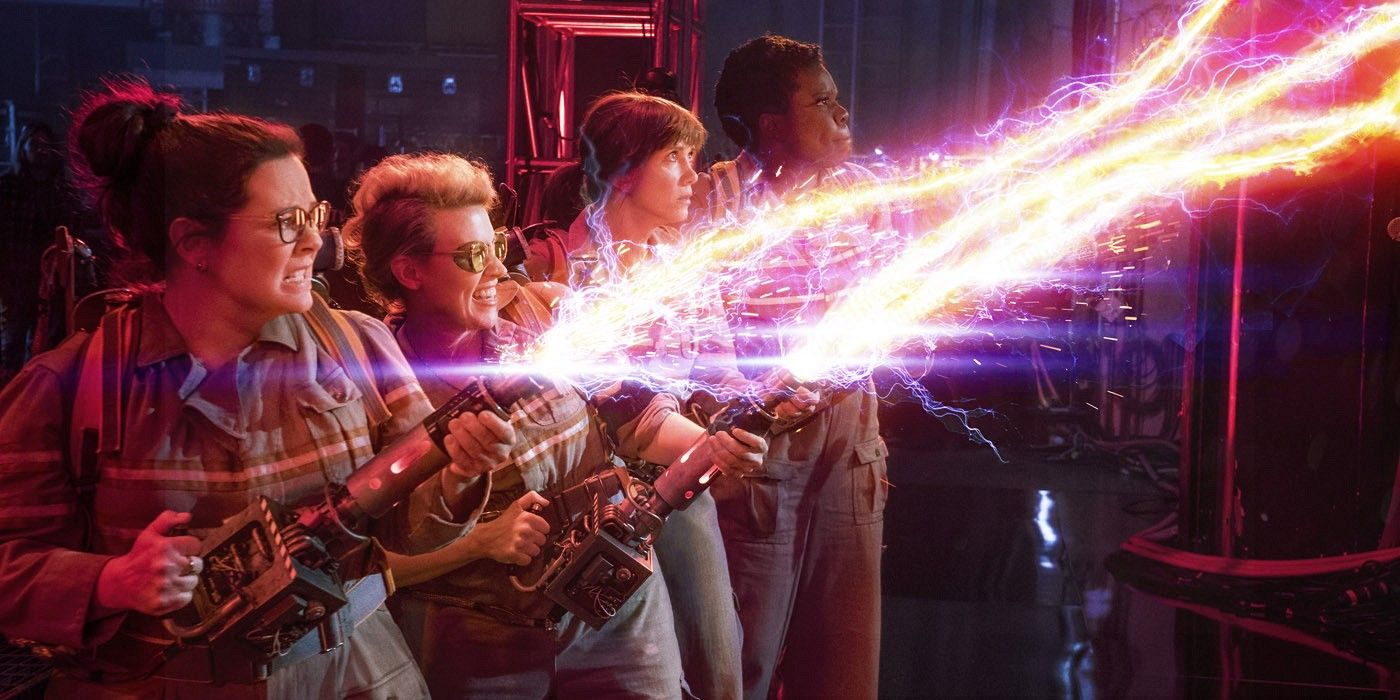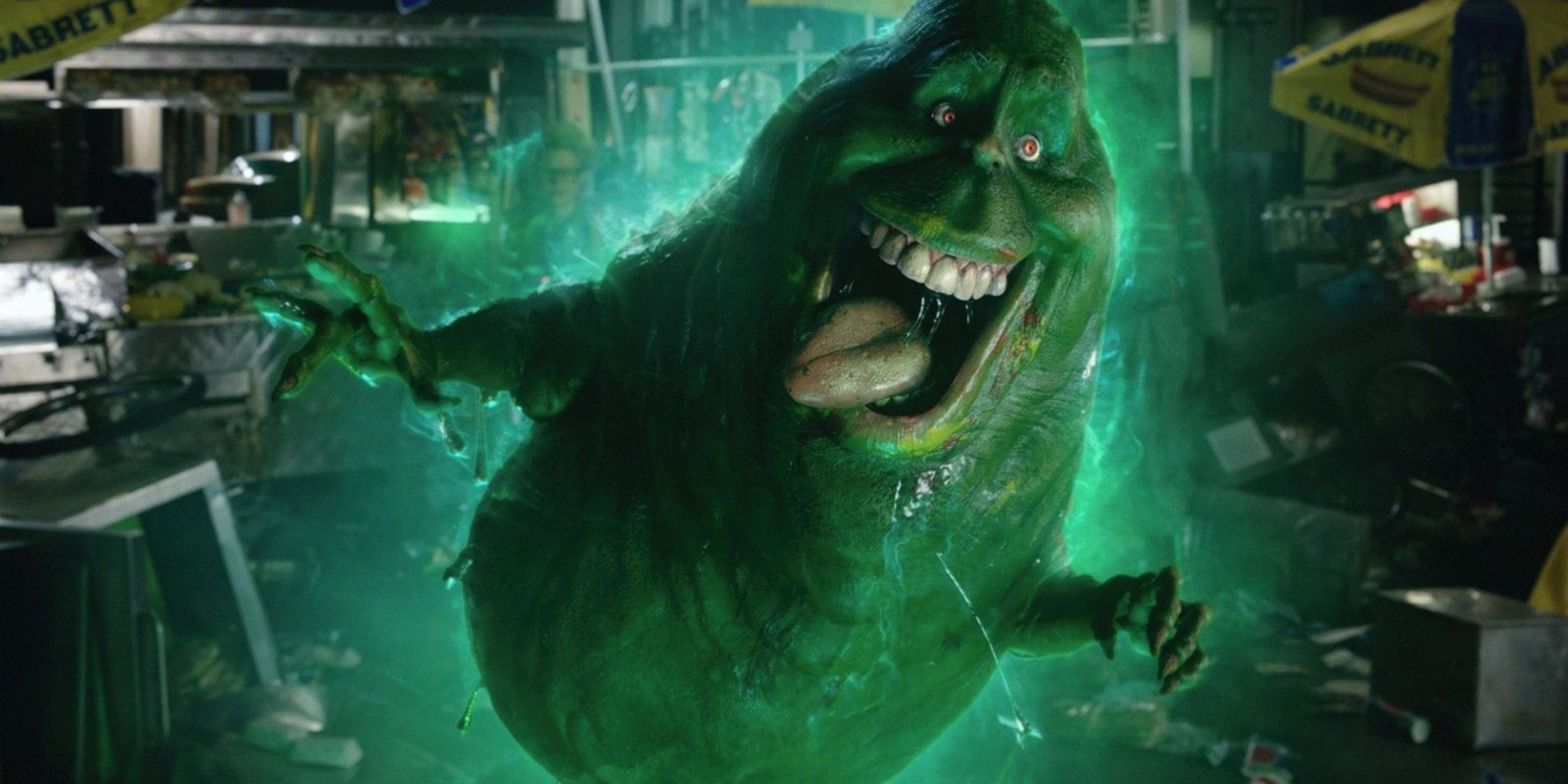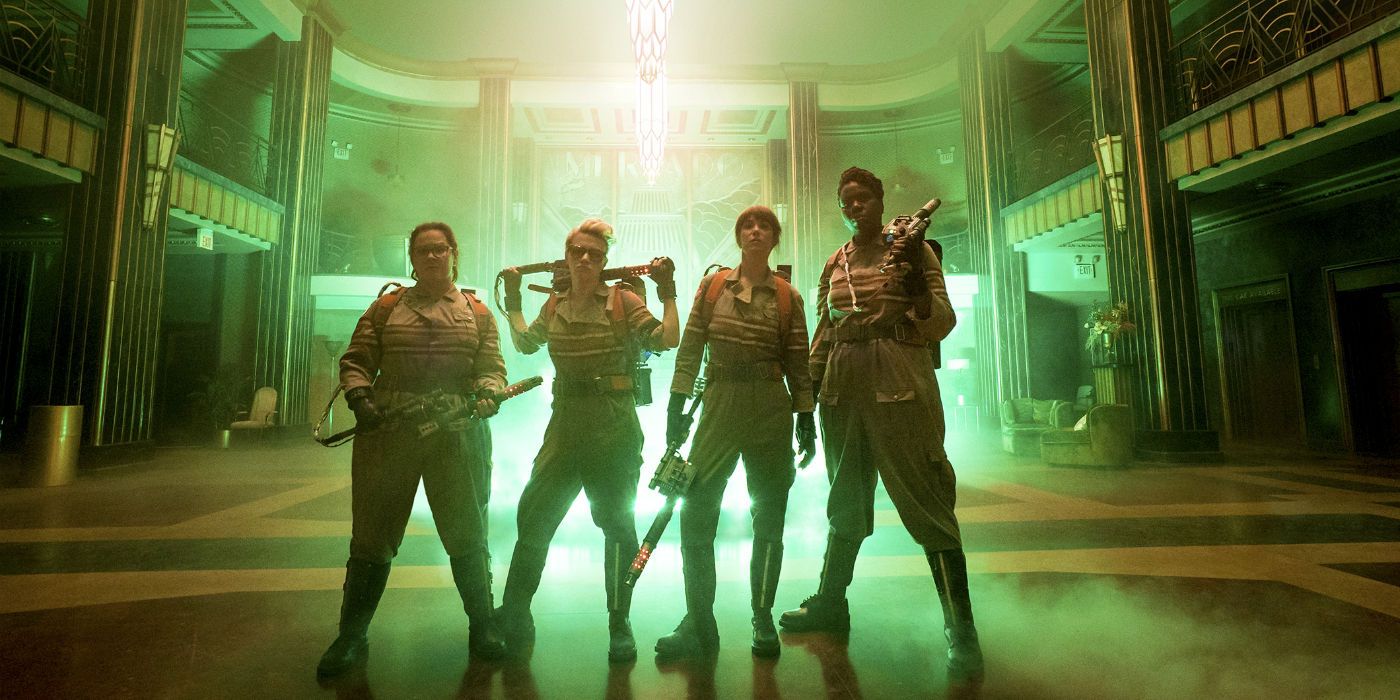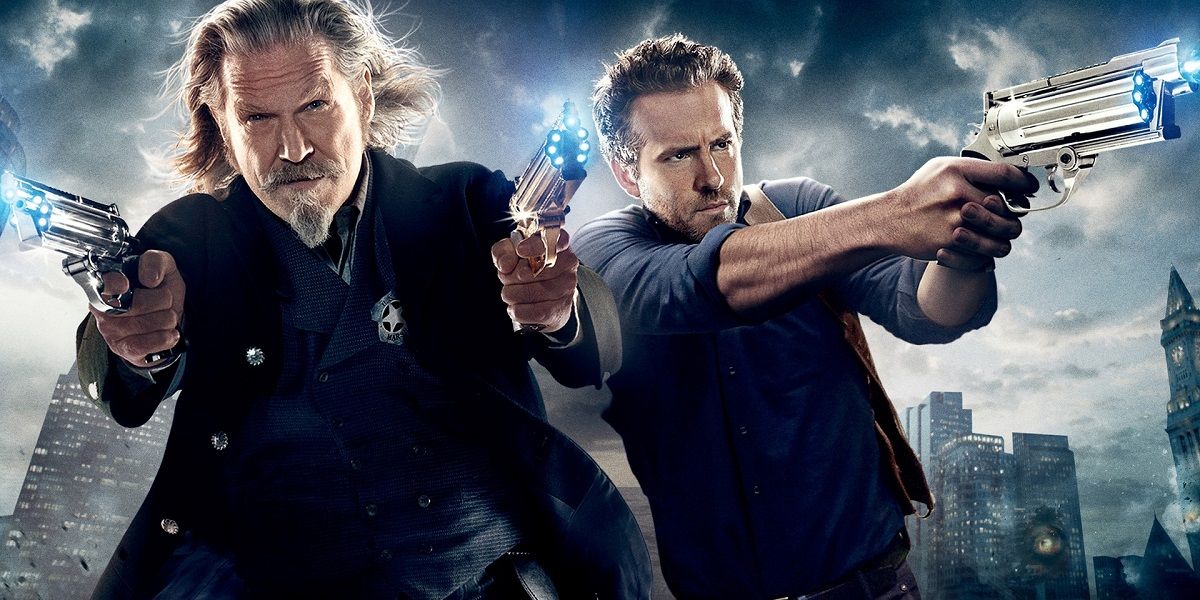It should be said right away that there are plenty of people who dislike this summer's reboot of Ghostbusters and don't need any reassurance that it's OK to feel that way. In fact, some were so enthusiastic about disliking it that they got started before the first cast member had even been announced.
It's honestly difficult to think of another movie that has had the lead-up to its release so overwhelmingly defined by the backlash against it. Perhaps the closest comparison is 2015's Fantastic Four, which infuriated certain comic book fans by casting an African-American actor as a character who was white in the comics. Multiply that reaction by four and you get Ghostbusters, which takes a classic movie about four guys teaming up to fight ghosts and reboots it with four women teaming up to fight ghosts.
The media's characterization of the backlash against Ghostbusters as sexist has raised protests from critics who insist that their complaints are entirely gender-blind, but it's a fair description. Aside from the fact that it's frankly laughable to think of a Ghostbusters reboot with another all-male team being subject to this level of sustained venom, no matter how bad it turned out, sexism became the centerpiece of the negative response by dint of its sheer volume and ugliness. A bowl of soup with a decomposing rat floating in the middle of it will always be seen as dead rat soup; pointing out that there are also organic mushrooms and fresh herbs in the soup won't change that.
This backlash ironically made it harder for people to criticize or dislike Ghostbusters, for fear of sliding into the metaphorical bowl of dead rat soup. Not only is it uncomfortable to find oneself on the same general side as people spitting slurs and making tired jokes about how the female Ghostbusters should get back to the kitchen, the presence of those people also engendered a desire for the movie to prove them wrong. Many who might otherwise have been indifferent or skeptical were spurred to at least keep an open mind about it, and look for things to like in the trailers. After all, it's natural to want to root for the underdog.
If, as many irate fans have claimed, Ghostbusters' reviews and Rotten Tomatoes score (which currently sits at 73%) have been even slightly massaged by a collective bias to go easy on the movie, then Sony owes its thanks for this outcome to those who campaigned tirelessly against it; to the people who started petitions to ban the movie, and those who signed them; to the people who sent death threats to director Paul Feig; to the Internet warriors who tirelessly downvoted any remotely Ghostbusters-related video that made its way to YouTube; to the YouTubers who uploaded their own diatribes detailing all the reasons why the Ghostbusters reboot was awful, months before anyone would actually see it. These people effectively handed Sony its marketing campaign on a silver platter.
3 cheers to @theellenshow from all the remarkable women of #ghostbusters. When we stand together we are unstoppable! #girlpower A photo posted by Melissa McCarthy (@melissamccarthy) on
-
As the Spice Girls learned back in the '90s, "Girl Power" is a powerful slogan. Ghostbusters and its surrounding furor arrived at a time of lively discussion about representation in Hollywood, where women are noticeably underrepresented on screen and woefully underrepresented behind the camera. There is a hunger in film journalism circles, and among general audiences as well, to see more women in leading roles, and for characters to no longer be written as male simply by default. Within a heavily male-dominated industry like Hollywood that is historically resistant to anything perceived as risk, achieving such change is an exhausting uphill battle. And amid that battle, by a mix of circumstance and deliberate spin, Ghostbusters became a symbol of defiance - the movie that would prove Girls Can Do It Too.
As a marketing gambit, capitalizing on the hate was a smart move. But those with a keen interest in seeing more female-led movies could be forgiven for feeling a sense of dread as they watched the battle lines drawn around Ghostbusters. Because believing that women are just as good as men, by extension, means believing that they are subject to the same bell curve.
Of the hundreds of Hollywood movies produced and released every year, most will end up being pretty good, just OK, or a little underwhelming. Outright bad movies are less common, and truly terrible movies are thankfully in the minority. The same is true in the opposite direction: great movies are still uncommon enough to be a pleasant surprise, and truly outstanding movies are rare gems. Ghostbusters, however, is in that middle cluster: depending on who you ask (personal opinion is its own bell curve, of course), the verdict on the reboot is that it's just fine. It has a few highlights (Kate McKinnon and Chris Hemsworth's performances have been almost universally praised), a scattering of laugh-out-loud jokes and some fun action moments, but it's probably not going to blow anyone away.
One of the worst things about the under-representation of women in Hollywood is that any female-led movie - particularly in the big money-making genres like action and sci-fi - is treated like a crystal ball for female-led movies as a whole. Green Lantern, X-Men Origins: Wolverine and Ghost Rider are remembered as individual examples of bad superhero movies, while Elektra and Catwoman are held up as evidence that female superhero movies don't work. A Ghostbusters reboot with another all-male team would have been permitted to fail and be forgotten almost immediately; a Ghostbusters reboot with an all-female team has to succeed, because it has something to prove.
Between the near-constant barrage of hate and misogyny that has dogged the project since it was first announced, the promise of a new beacon of hope for female-led movies, and the subsequent crushing pressure for it to succeed, Ghostbusters has come under the kind of scrutiny that, say, 2013's abysmal ghost-busting action comedy R.I.P.D. never faced. As a result, not enjoying or even actively disliking Ghostbusters can be a disheartening experience for those with a sincere desire to see women succeed in Hollywood.
But just because Ghostbusters' fiercest attackers and defenders have framed it as some kind of battlefield of the sexes, not liking the movie doesn't mean admitting that the sexists were right. Ghostbusters is simply the latest in a long line of pretty average Hollywood reboots, not some grand final test of feminine power. Women have been hilarious in comedies before, and they will be again. There have been great female-led action movies, and there will be again. And hopefully Kate McKinnon will be in a lot of those movies.
Of course, the opposite of this message holds true. If you happen to be among one of Ghostbusters' most passionate long-term detractors, but found yourself guiltily enjoying the movie when you finally saw it, then don't worry - it's OK to like Ghostbusters.
Ghostbusters is in theaters now.




